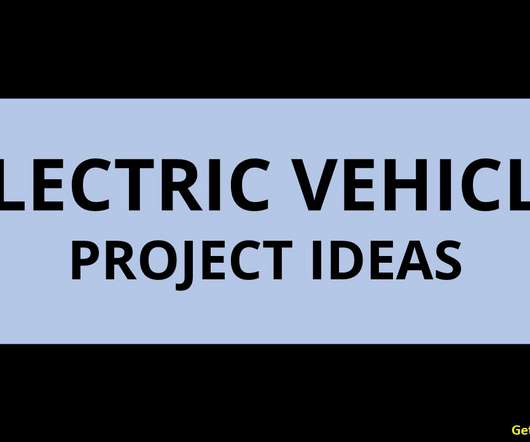Electric Vehicle Project Ideas | Ph.D., MTech, MSc | Electrical, Management, Mechanical & More…
Get Electric Vehicle
FEBRUARY 16, 2022
Vehicle to Grid is a really interesting area to do projects. The idea here is that you can connect your EV to the power grid and flow power from your EV to the Grid. An electric car acts as a load or micro-generating station for the grid. Advantages of V2G in grid perspective 2.












Let's personalize your content